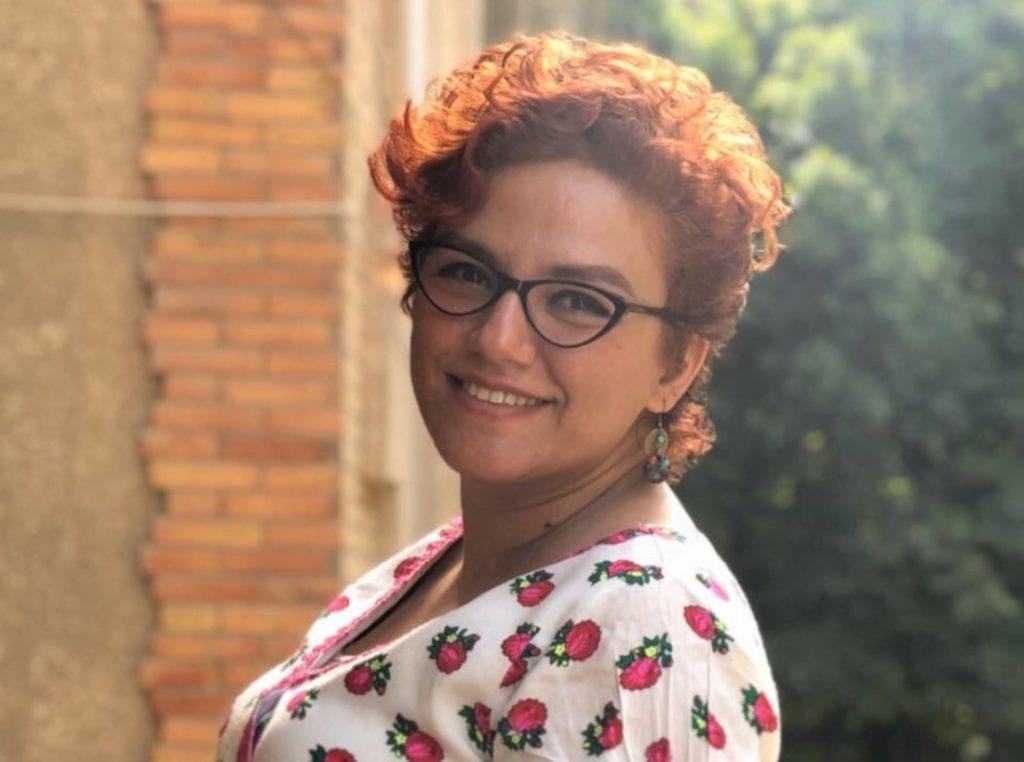Female media figures who used to work closely, sharing their experiences in their profession, life and motherhood outside prison, today are comrades behind bars. Even if they were in separate cells, they are still companions during a new and cruel stage in their lives, after they were deprived of their motherhood, professions and laughter.
Basma Mustafa, Sulafa Majdi, Israa Abdel Fattah and Marwa Arafa, two journalists, an activist and a translator, were close friends before security forces arrested them one after the other, at close intervals within only one year. They were all arrested under a common accusation: “joining a terrorist group and spreading false news”. It was as if the Egyptian security suddenly became more experienced in catching terrorist butterflies, and depriving mothers of their children… Three mothers (Basma, Marwa, and Solafa) and three young girls under the age of ten, are all jointly experiencing the extent of the recent suppression of press freedoms in Egypt.

Marwa Arafa 

Israa Abdel Fattah 

Sulafa Majdi 

Basma Mustafa
Our colleague the journalist Basma Mostafa joined the dozens of female journalists who have been arrested on charges of joining “terrorist groups and spreading fake news”, after she was arrested on October 3rd after arriving at the Luxor train station to cover the Awamiya events. Field coverage in Egypt has become a dangerous threat, with those who are arrested being held in “reserve” prison for an indefinite period of time, a punishment that takes a painful toll both physically and psychologically. When imprisoned in a “reserve prison”, you are not given a specific timeframe for your release, and successive renewals of your stay there may take place indefinitely. This type of prison in Egypt, is often called the ‘Forgotten Prison’, the same one in which Shadi Habash died a few months ago, after he realized that he had too, been forgotten.
The electronic tracking that Basma had been exposed to reveals the extent of the risks facing journalists in Egypt from pirates from the Egyptian State Security, whose main task is to enter journalists’ accounts and access information about their work and private lives.
Before her arrest, Basma Mostafa had been keen on covering the Fairmont case events for a website called “Al-Minassa”, a sexual harassment case involving children of influential businessmen in Egypt participating in the rape of a young girl who had been inside the Fairmont Hotel. They reportedly boastingly filmed the event and spread it on social media, after they had drugged her and she’d lost consciousness. Basma had revealed in her reports that witnesses in the case were being turned into criminals, and that they were being subjected to degrading rectal examinations. Since then, Basma’s online accounts were all subjected to electronic hacking in an attempt to track her down, until security forces recently succeeded in catching her from the train station.
The electronic tracking that Basma had been exposed to reveals the extent of the risks facing journalists in Egypt from pirates from the Egyptian State Security, whose main task is to enter journalists’ accounts and access information about their work and private lives. In a shocking report, the website ‘nile phish’ monitored the breaches in the personal accounts of workers in some media and human rights institutions in Egypt, such as “Nazra Center”, “Cairo Center” and “Nadim Center” and others, which exposed the professional and personal life of the workers in both fields.
Lawyer Karim Abdel Radi explained to “Daraj” that Basma was subjected to hacking attempts on more than three occasions over the course of a month. After she was arrested, security forces went through her accounts closely, searching through her Facebook and WhatsApp conversations, emails, and even her personal photos. She was accused of three charges, namely joining a terrorist group, misusing social media, and publishing fake news.
Karim Abdel Radi, who attended her investigation, said: “She was exhausted and stressed, and had gone a long time without sleep. She was detained without being able to take her insomnia and depression medications. The investigation went on for a long time, revolving around the entirety of her career, not just the Fairmont case in particular.”
“Our daughter forgot about her mother because she is still a baby, and her mother was taken from her during a critical period in her development… Marwa is in great pain because she is not seeing her, refusing for me to bring her to the prison because of the insecure conditions for children on visits.”
Regarding her detention, he said: “The State Security Prosecution often prolongs the use of pretrial detention, although the legislation had previously set certain controls for this as a precautionary measure; But now the prosecution has now transferred pretrial detention to a punishment in itself, without any controls or conditions, with the intention of abusing detainees.”
Journalist Sulafa Magdy and her husband Hussam Al-Sayyad, who are now behind bars, have also been subjected to a systematic tracking process, which facilitated their arrest, and are now also facing charges of joining a terrorist group and spreading fake news, and are being held in detention without trial. Prior to this Sulafa Magdy had won a nomination for the International Women’s Media Foundation’s Journalistic Courage Award, chosen by the “Washington Post” as part of a campaign it launched in conjunction with World Press Freedom Day to shed light on 8 journalists from different regions of the world facing imprisonment or persecution in their work.
The translator, Marwa Arafa, was also arrested from her home, and had her personal belongings confiscated, including her laptop and mobile phone. Marwa faces the same charge of joining a terrorist group, in Al-Qanater prison, in pretrial detention.
Tamer Mawafi, the father of Arafa’s daughter, told “Daraj”: “We did not notice any tracking or monitoring before her arrest, but it seems like she was being watched by more traditional means, which we learned after her arrest. She was unknowingly being surveilled and then disappeared for 15 days where she had been kidnapped, until she appeared in the Dokki police station, then transferred to the first district of Nasr City, and then was finally transferred to El-Qanater Prison.”
“We were only able to visit Marwa once, for 20 minutes, and only one person was allowed in, her mother,” Mawafi adds. “Marwa lost a lot of weight in prison, and is suffering from problems in her spine and jaw, and she needs an urgent operation so that pus doesn’t accumulate inside her body.
Mawafi explains that Marwa has exhausted her renewal periods in her pretrial detention, but nonetheless, she is still being detained. “Our daughter forgot about her mother because she is still a baby, and her mother was taken from her during a critical period in her development. Marwa is in great pain because she is not seeing her, refusing for me to bring her to the prison because of the insecure conditions for children on visits.”
Activist Israa Abdel Fattah, one of the most prominent advocates of the April 6, 2008 strike in protest against high prices and corruption, winning the Glamor Award for ‘The World Changer’, was banned from traveling before her arrest and is now facing charges of joining a terrorist group as well. Israa had previously described to “Daraj” the extent of the repression she faces in Egypt because of her political work. “The travel ban has affected my life a lot. On the practical level, I lost a scholarship to travel and study in the United States, then a Chevening scholarship supported by the British embassy, and I kept losing scholarships I applied to during the past four years. I work in the field of social media and my career depends a lot on scholarships and training. Unfortunately, these grants are conditional on the applicant’s age not exceeding 35 years, so I will probably not succeed in obtaining them again.” Travel bans are usually limited to a certain timeframe, but in her case, it was an indefinite ban.
Update: Hours after the article was published, it was announced that Basma was released.






